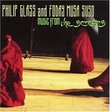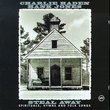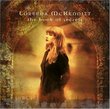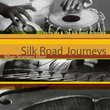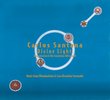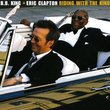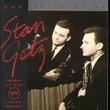| All Artists: Philip Glass Title: Kundun: Music From The Original Soundtrack Members Wishing: 0 Total Copies: 0 Label: Nonesuch Original Release Date: 11/25/1997 Release Date: 11/25/1997 Album Type: Soundtrack Genres: Dance & Electronic, International Music, Jazz, Soundtracks Styles: Techno, Avant Garde & Free Jazz Number of Discs: 1 SwapaCD Credits: 1 UPCs: 075597946024, 075597946062, 007559794602 |
Search - Philip Glass :: Kundun: Music From The Original Soundtrack
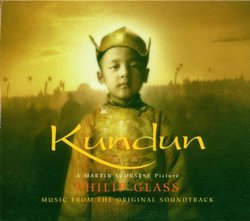 | Philip Glass Kundun: Music From The Original Soundtrack Genres: Dance & Electronic, International Music, Jazz, Soundtracks
For the second of 1997's dueling Buddhist epics (the other being Seven Days in Tibet, scored by John Williams), director Martin Scorsese made a wise--if commercially challenging--choice in tapping noted minimalist compose... more » |
Larger Image |
CD DetailsSynopsis
Amazon.com For the second of 1997's dueling Buddhist epics (the other being Seven Days in Tibet, scored by John Williams), director Martin Scorsese made a wise--if commercially challenging--choice in tapping noted minimalist composer Philip Glass to score Kundun. Glass (who's previously scored the avant garde documentary Koyaanisqatsi trilogy, Mishima, and the strange Candyman horror series), is the perfect choice here; his own Buddhist beliefs play a key role in meshing image and music. Glass's familiar compositional techniques are wedded on Kundun to a sensitive use of ethnic instruments and the voices of the Gyuto Monks, adding an aura of spiritual power missing from most Hollywood fare. --Jerry McCulley Similarly Requested CDs
|
CD ReviewsVintage Glass with Tibetan Instruments 04/29/1999 (5 out of 5 stars) "This is vintage Glass. If you like "Koyaanisqatsi", you should like "Kundun". Like all of Glass's work, this one takes some time to get into, but once you've heard it, it becomes compelling, hypnotic, even addictive.One of the reviewers below complains that this music isn't Tibetan enough. This is like complaining that Beethoven doesn't use Flemish folk songs enough. If you want traditional Tibetan music, buy some. If you want Philip Glass, buy "Kundun".It's true that the music is vaguely reminiscent of "Koyaanisqatsi". This is not necessarily a bad thing, "Koyaanisqatsi" being one of Glass's greatest works.Some of the music is also reminiscent of Bernard Herrman's score for "Journey to the Center of the Earth". Since Glass is a Minimalist instead of a Romantic like Herrman, however, don't expect to hear the great bursts of emotion you find in "Journey to the Center of the Earth". On the other hand, Herrman followed the action of the movie so closely that his score sounds like a series of unconnected pieces. "Kundun" is far more unified, and you feel like you've heard a symphony when it's over.One of the reviewers complains that the orchestra doesn't seem to contain many Tibetan instruments. I wonder how many Westerners can recognize Tibetan instruments when they hear them. If you look at traditional non-Western instruments all over the world, you find the same general themes over and over again: flutes (like the Andean pan-pipes), horns (like the Tibetan horns heard in this music), drums, and stringed instruments (like the Chinese biba or the Japanese koto). It takes a sensitive ear to hear the difference between one of these instruments and the Western equivalent." Hypnotic G. Sawaged | Canada | 12/01/2001 (5 out of 5 stars) "I may be in the minority of the reviewers here, in that I have never seen the movie "Kundun". I picked up this cd because it looked interesting (I know...u can't judge a book, or cd in this case, by it's cover), but I am a great experimentor and I love 'discovering' different forms and types of music. And this looked intriguing and different. I thought it might be hard to get into, but not at all. From the opening track I was spellbound. I find the whole album to be very dark and mysterious...captivating, hypnotic and spellbinding. It is unlike any soundtrack that I own, and I love it. I've been playing it straight for the last 3 days, and the more I hear it the more I find to like. It's a wonderful cd to relax and meditate too. It is very soothing. Now I just have to see the movie too. :)" This Glass guy is really getting to me Clayton W. Hibbert | 04/21/2000 (4 out of 5 stars) "I used to HATE Philip Glass. I thought, how can such a no-talent hack get work-- all he does is make the same music and recycle it! Then I saw Koyanasqatsi and Powaqqatsi. Powaqqatsi really impressed me, particularly because of the music. I saw the CD sitting in a record store one day, and bought it (the clerk even forgot to charge me for it!)Not less than a week ago I wrote a five-star review of the excellent Powaqqatsi soundtrack, relaying how great I thought the music was while knock, knocking Philip Glass for his repetition. After that I began browsing through the other Glass listings, listening to the samples. Later, I saw the Kundun DVD at my video store, and decided to watch it again. The next day, I searched out the soundtrack. I have to take back the statement I made about never having to hear another Glass score. Granted, all of his music seems to be variations of a similar theme, but he can take that in many directions. Kundun has an entirely different feel than Powaqqatsi. It is meditative, while Powaqqatsi is like a celebration of life. I own two Glass albums now, and now it seems likely that I'll own three (the Glass/Shankar collaboration looks appealing). I wouldn't have been able to fathom that a year ago."
|

 Track Listings (18) - Disc #1
Track Listings (18) - Disc #1